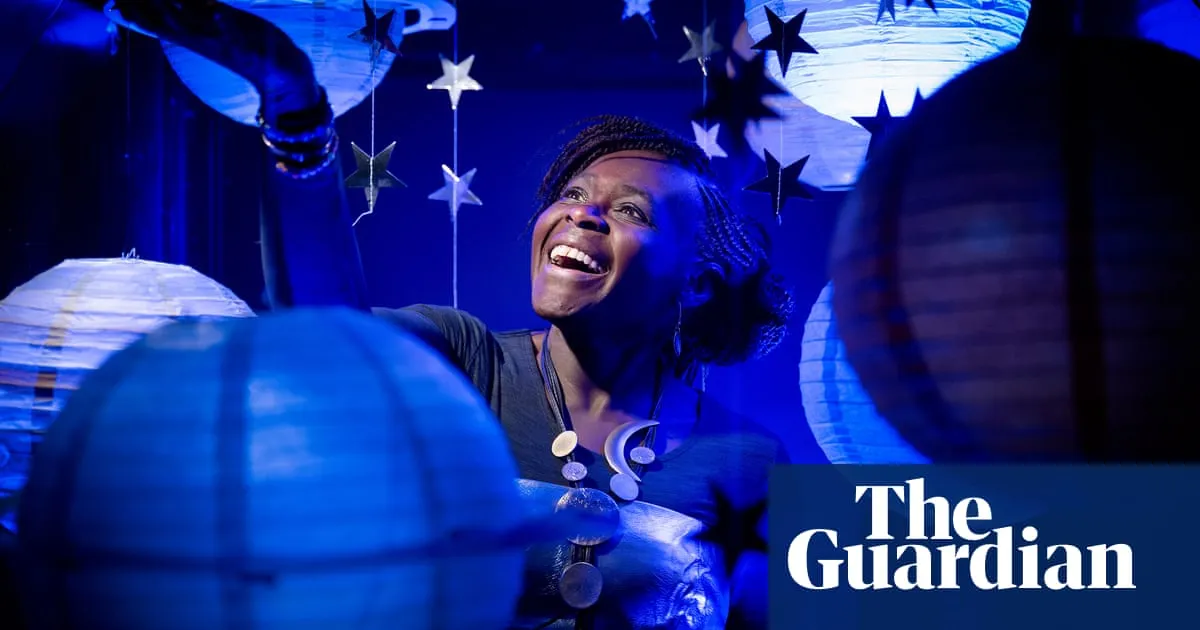
The quest for extraterrestrial life continues to intrigue scientists and the general public alike. Leading British space scientist Dame Maggie Aderin-Pocock firmly believes that life must exist beyond Earth. In her upcoming Royal Institution Christmas Lectures, she emphasizes that it is a remarkable example of human pride to assume we are the only intelligent beings in the universe.
As a prominent figure in the field of space science, Aderin-Pocock points out that despite the significant advancements in our understanding of space, including the vastness of the universe, many questions remain unanswered. One of the most profound queries is whether humanity is alone in the cosmos. “My answer to that, based on the numbers, is no, we can’t be,” she asserts, highlighting the human tendency to become overly focused on ourselves.
Aderin-Pocock further elaborates on the limitations of our current knowledge, stating, “The fact we only know what approximately 6% of the universe is made of at this stage is a bit embarrassing.” This statistic underscores the mystery surrounding dark energy and dark matter, which constitute most of the universe but remain largely ungrasped by scientists.
The Royal Institution Christmas Lectures serve as a platform for scientific discourse and exploration. Aderin-Pocock is set to unravel the astonishing discoveries and unresolved mysteries of the universe in the 2025 series. These prestigious lectures, which began in 1825 under the guidance of chemist and physicist Michael Faraday, aim to inspire curiosity and wonder in science.
“It’s that sense of wonder and exploration, and the sense that there’s so much more to discover,” Aderin-Pocock remarks. She emphasizes that scientific progress is not merely a series of breakthroughs but rather a complex journey where some theories are discarded while others are expanded upon. Historical perspectives, such as the long-standing belief that Earth was at the center of the universe, showcase the evolution of scientific understanding.
This year marks a significant milestone for the Royal Institution, celebrating the bicentenary of several of Faraday’s achievements, including the Christmas Lectures and the discovery of benzene. To commemorate this occasion, the institution is launching a year-long celebration titled Discover200, featuring candlelit discourses, reenactments of past lectures, and the release of historical Christmas Lectures on YouTube.
Aderin-Pocock is keen to delve into the archives of the Royal Institution, including the influential lectures by American astronomer Carl Sagan, to reflect on how our comprehension of space has evolved over the years.
One of the most significant advancements in astronomical observation is the launch of the James Webb Space Telescope (JWST) on Christmas Day 2021. With its expansive 18-segment mirror, the JWST acts as a time machine, capturing light from distant galaxies that was emitted when the universe was still in its infancy. Aderin-Pocock notes, “One of the things that it’s discovering is that galaxies seem to be bigger than we anticipated in the early universe.”
This revelation raises critical questions about the fundamental laws of physics and the existence of dark matter. Aderin-Pocock has a personal connection to the JWST, having contributed to its Near-Infrared Spectrograph instrument. However, the mission faces potential budget cuts of up to 20%, which raises concerns about the future of this groundbreaking project.
As the scrutiny of NASA's budget unfolds, Aderin-Pocock expresses concern about the involvement of Elon Musk, CEO of SpaceX, in evaluating the agency. She describes this as a potential conflict of interest, stating, “It’s an odd stance to take to have Musk looking at this, because you need someone independent.” Aderin-Pocock argues for the necessity of impartial oversight to ensure that space exploration serves the greater good.
While acknowledging the potential benefits of the commercialization of space, which she refers to as the “battle of the billionaires,” Aderin-Pocock emphasizes the importance of proper legislation. “Sometimes it feels a bit like the wild west,” she warns, stressing that without appropriate regulations, humanity risks repeating past mistakes in space exploration.
Aderin-Pocock shares her vision of the future, suggesting that crewed missions to other planets are not just possible but likely. “I won’t say it’s our destiny because that sounds a bit weird, but I think it is our future,” she asserts. She points to historical events, such as the asteroid impact that led to the extinction of the dinosaurs, as reminders of Earth's vulnerabilities. “Planets can be vulnerable,” she cautions, advocating for the exploration of other celestial bodies like the Moon and Mars as potential sites for human colonies.
In conclusion, Dame Maggie Aderin-Pocock’s insights highlight the vast unknowns of the universe and our place within it. Her upcoming lectures promise to inspire a new generation of scientists and enthusiasts to look beyond our planet in the search for life beyond Earth.